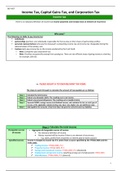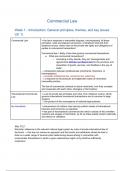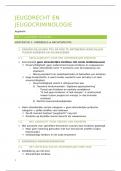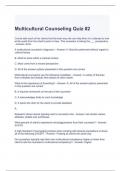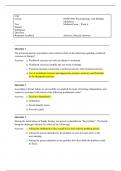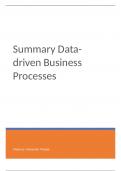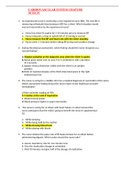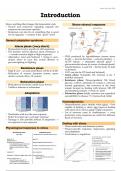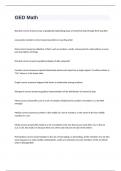Summary
Summary W7 - BUSINESS LAW & PRACTICE - MARCH 2024
- Module
- Business Law (BUS)
- Institution
- University Of Law (ULaw)
Exam Ready Notes for CORE Module ‘Business Law’! Workshop 7 Notes of the Business Module on the Legal Practice Course (LPC) at the University of Law. These notes were used for the June 2023 exams, where I achieved a Distinction!
[Show more]
